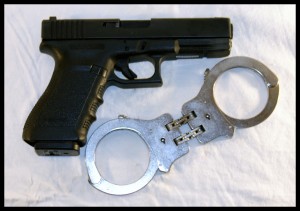Virginia Receipt of Stolen Firearm Charge
February 9, 2016 by Jean Humbrecht


The value of the property stolen usually determines whether the Receiving Stolen Goods charge is a misdemeanor or a felony. However, receipt of a stolen firearm, regardless of its value, is always a felony in Virginia.
Virginia Receipt of Stolen Firearm Charge
Receiving a Stolen Firearm is charged under Va. Code §18.2-108.1. The statute prohibits buying or receiving a firearm from another person knowing that the firearm was stolen. It also prohibits aiding in concealing a firearm that the offender knew was stolen. This charge is brought against the person who received the stolen firearm, not the person who originally took it.
What is a Firearm?
In Virginia, a firearm is any “instrument which was designed, made, and intended to expel a projectile by means of an explosion.” For more information on firearm offenses in Virginia, click here.
Proof of Virginia Receipt of Stolen Firearm Charge
To convict an offender of a Virginia receipt of stolen firearm charge, the Commonwealth must prove:
- the firearm was stolen
- the offender bought, received or concealed the firearm, and
- the offender had knowledge that the firearm was stolen when he received it.
Penalties for Virginia Receipt of Stolen Firearm Charge
Receiving a stolen firearm in Virginia is a Class 6 felony. It can be punished with up to 5 years in prison and a fine up to $2500.
Va. Code §18.2-108.2, Receipt of Stolen Firearm
“Notwithstanding the provisions of § 18.2-108, any person who buys or receives a firearm from another person or aids in concealing a firearm, knowing that the firearm was stolen, shall be guilty of a Class 6 felony and may be proceeded against although the principal offender is not convicted.”





